WEP 2022 highlights the power of resilience
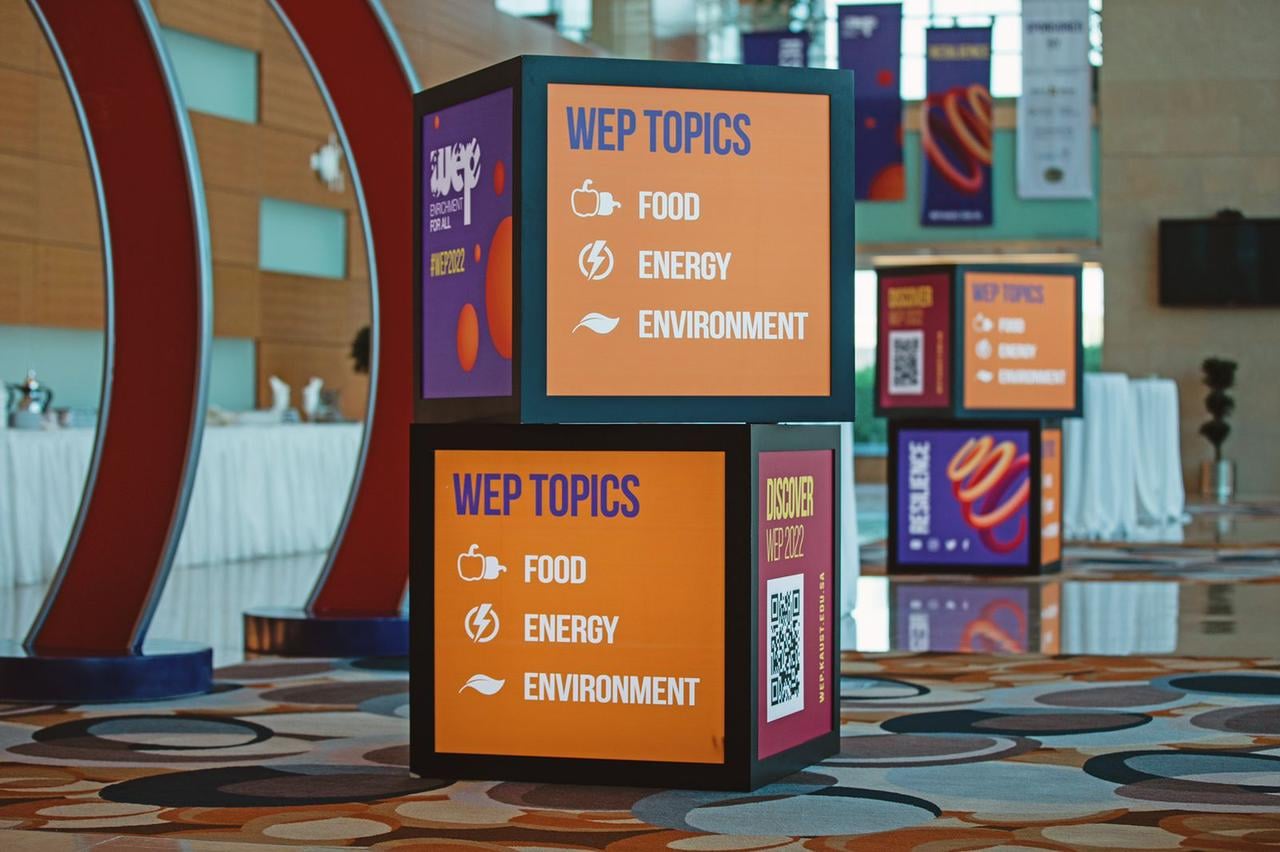
The Winter Enrichment Program returned in 2022 from January 9–20 under the theme of Resilience.
The 2022 Winter Enrichment Program at KAUST (WEP) recently ran from January 9 to 20. This year's hybrid WEP theme was all about 'Resilience.' WEP 2022 featured 65+ events and a series of engaging keynotes and distinguished lectures from over 70 institutional, local and international speakers. They included prominent academics from leading universities, eminent speakers, industry leaders, entrepreneurs, elite athletes, artists, and officials. This year's program was chaired by Associate Professor Peiying Hong and co-chaired by Associate Professor Derya Baran.
"With the increase in the number of COVID-19 cases globally, I think this year's theme of resilience particularly resonates with our need to stay adaptable and remain strong in front of whatever challenges we face one way or another," said Professor Peiying Hong, WEP 2022 chair.
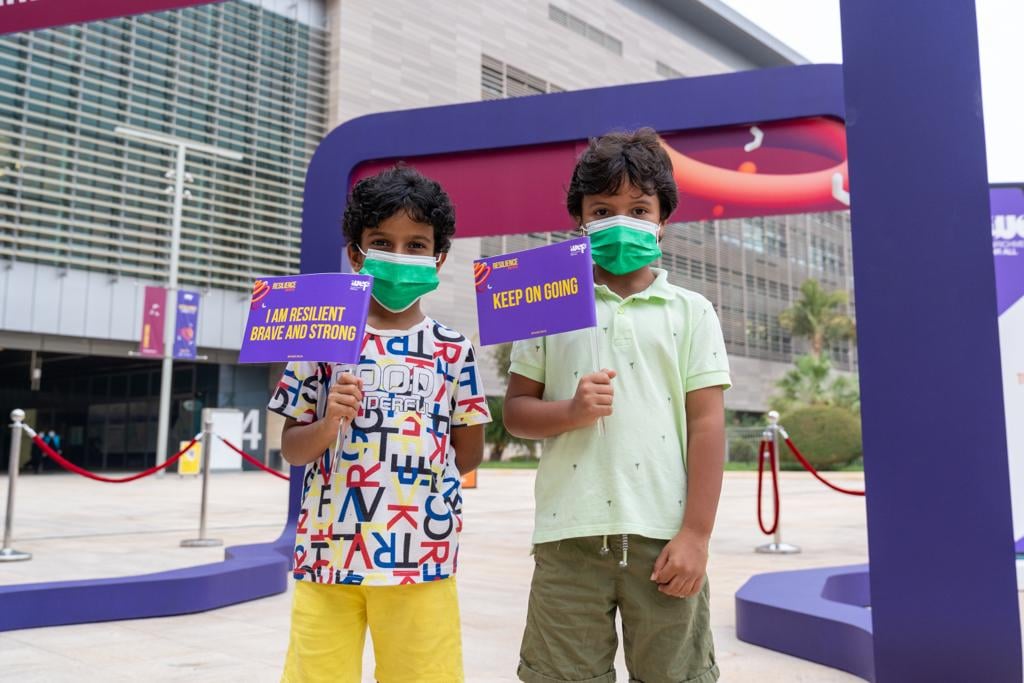
WEP 2022's program featured talks and events centered around the theme of resilience.
Among those challenges is how the pandemic has pushed the limits of global healthcare systems, tested our perseverance as individuals, businesses, institutions and societies, as well as accelerated the trend of digitization. As our collective resilience has been tested in the last couple of years by COVID, we've seen and learned how our lives have been actually adapting to new realities, through resilience.
WEP 2022's Dare to Fail Exhibit showcased many stories of how resilience drives innovation and invention—not perfection and a flawless road to success. The reality is that failures do occur and that lessons must be learned when failures happen. Learning from failures is an essential element of innovation and the entrepreneurship journey, which supports and enables sustainable solutions for the betterment of humanity.
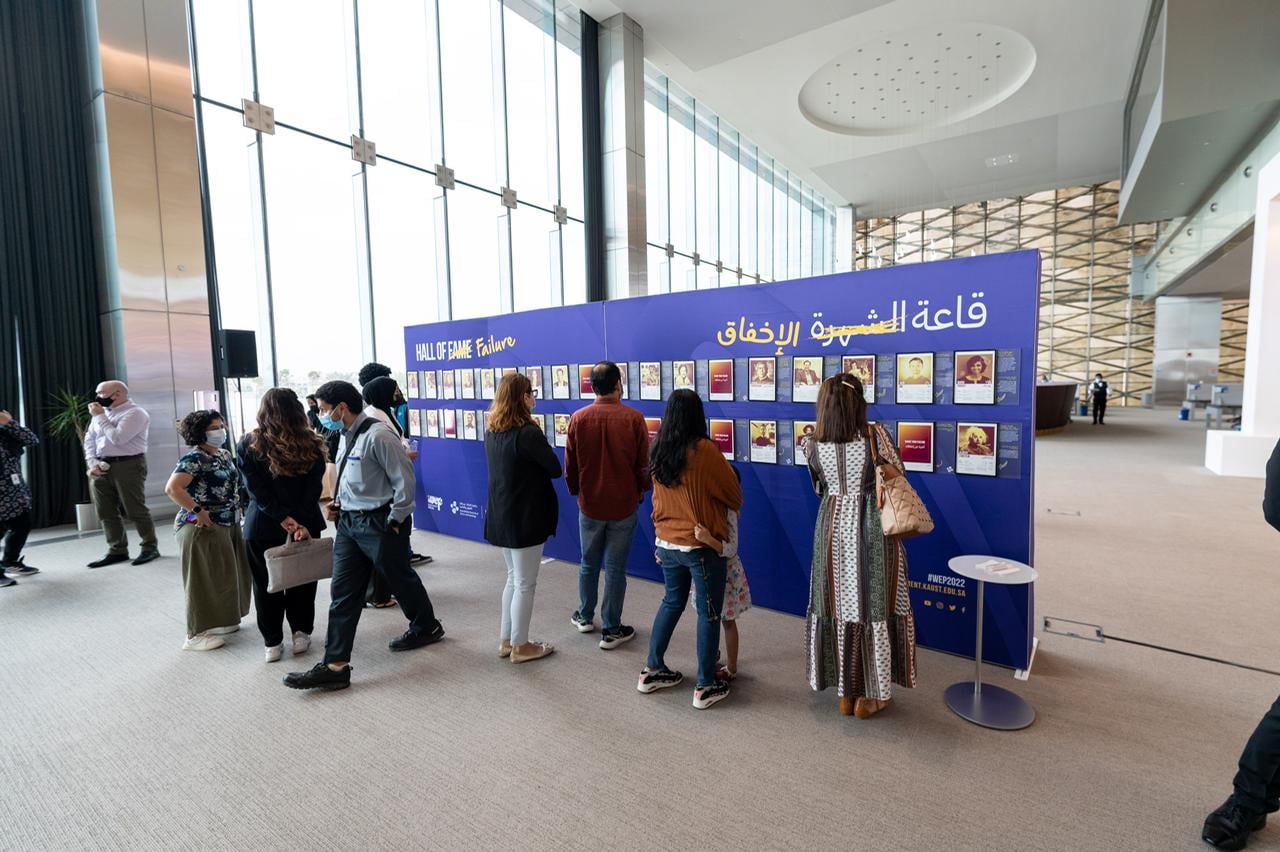
Visitors exploring the Hall of Failure at the Dare to Fail Exhibit.
The importance of learning from failure as an aspect of resilience was also highlighted in a panel discussion exploring the intersection of cybersecurity and AI (artificial intelligence). In order to build a more renewables-driven future, we need to develop increasingly complex data and energy system infrastructures, often enabled by AI and machine learning. It's an incredibly interesting time in the energy industry, and resilience, recovery, and learning must all be built into designing and implementing those platforms.
Extreme weather events and climate change are among some of the other principal factors driving our existential requirements for building resilient energy systems and climate models—helping us also to manage the intersection of science, socio-economics and politics. WEP 2022 featured several talks where scientists, faculty and world-renowned experts discussed science-based approaches to address climate change.
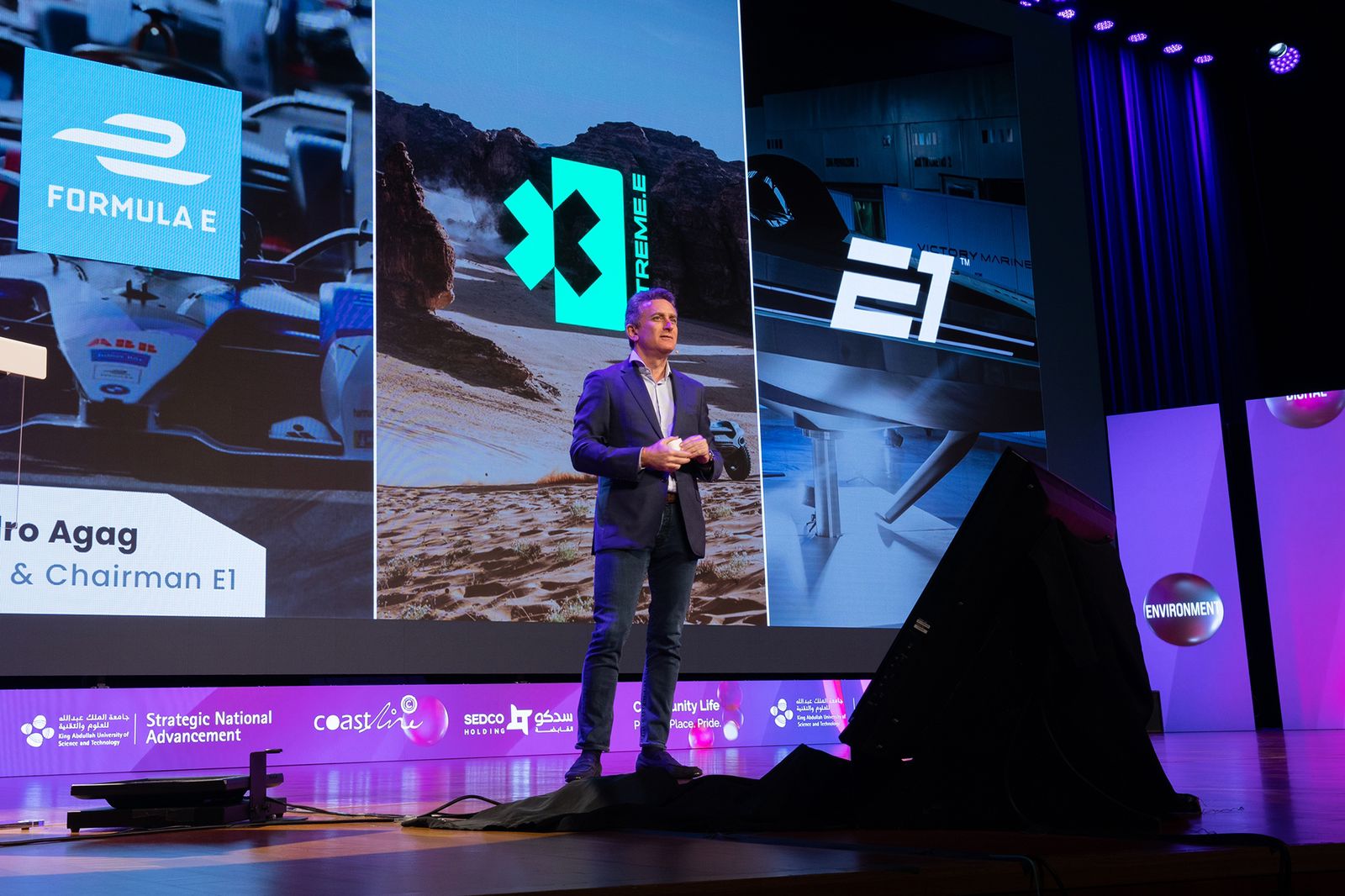
Many inspiring international speakers, such as Formula E and Extreme E founder Alejandro Agag, spoke about their experience living and breathing the program's overall theme of resilience.
From an environmental perspective, one of the many adverse effects of climate change is the threat to the health and survival of our coral reef ecosystems around the world. Corals cover only less than 0.1% of the ocean floor but support around 30% of all known marine animals. We depend on coral reefs' resilience for economic prosperity, marine ecosystem stability and even our own safety. Corals support people's livelihoods through fisheries, bring important tourism revenue and even provide shoreline protection against incoming strong waves and water-related extreme events. But global warming and the rise in sea temperatures represent the main threat to coral reefs and the biodiversity of marine ecosystems.
Among the research and work needed for mitigating these environmental challenges, saving our planet and building a clean energy future is
devising resilient carbon-reduction strategies.
Our community and events
The effort to reduce our carbon footprint, protect the environment, build resilience and even emotional intelligence to create a better future starts at the individual and local levels. From children, adults and communities, we all have our roles to play.
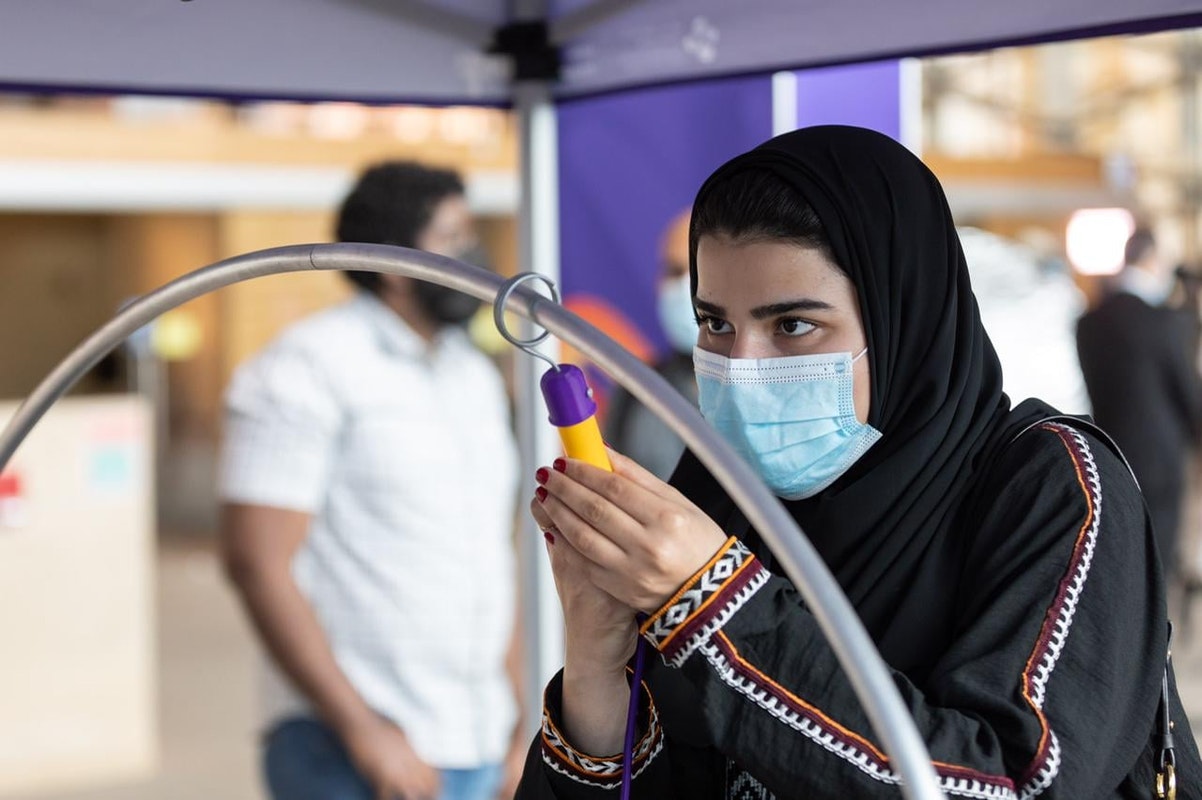
Community members and visitors to WEP 2022 took part in many resilience-building fun activities.
A great example was the Mangrove Plantation activity during WEP 2022, where a group of student participants planted around 220 mangrove saplings at the KAUST Nature Conservation Area in order to help sequester the carbon footprint generated from airline travel-related carbon emissions. The activity was done in collaboration with the KAUST HSE biodiversity group as well as the KAUST Facilities and Management horticulture group.
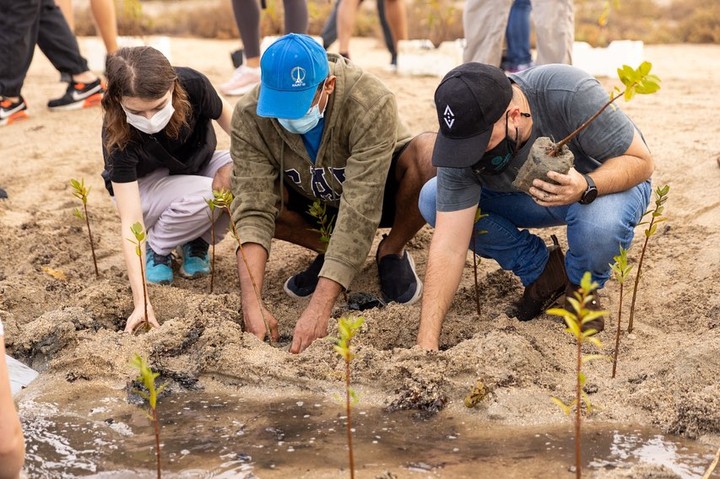
Mangrove planting activity at the KAUST Nature Conservation Area.
Also, for the first time in WEP history, the annual Science Fair moved outside the KAUST campus and was held in the nearby community of Thuwal. The KAUST Science Festival was a celebration of the collaborative power of discovery jointly organized by Strategic National Advancement’s Social Responsibility department, and the Provost’s Office of Culture, Enrichment and Engagement.
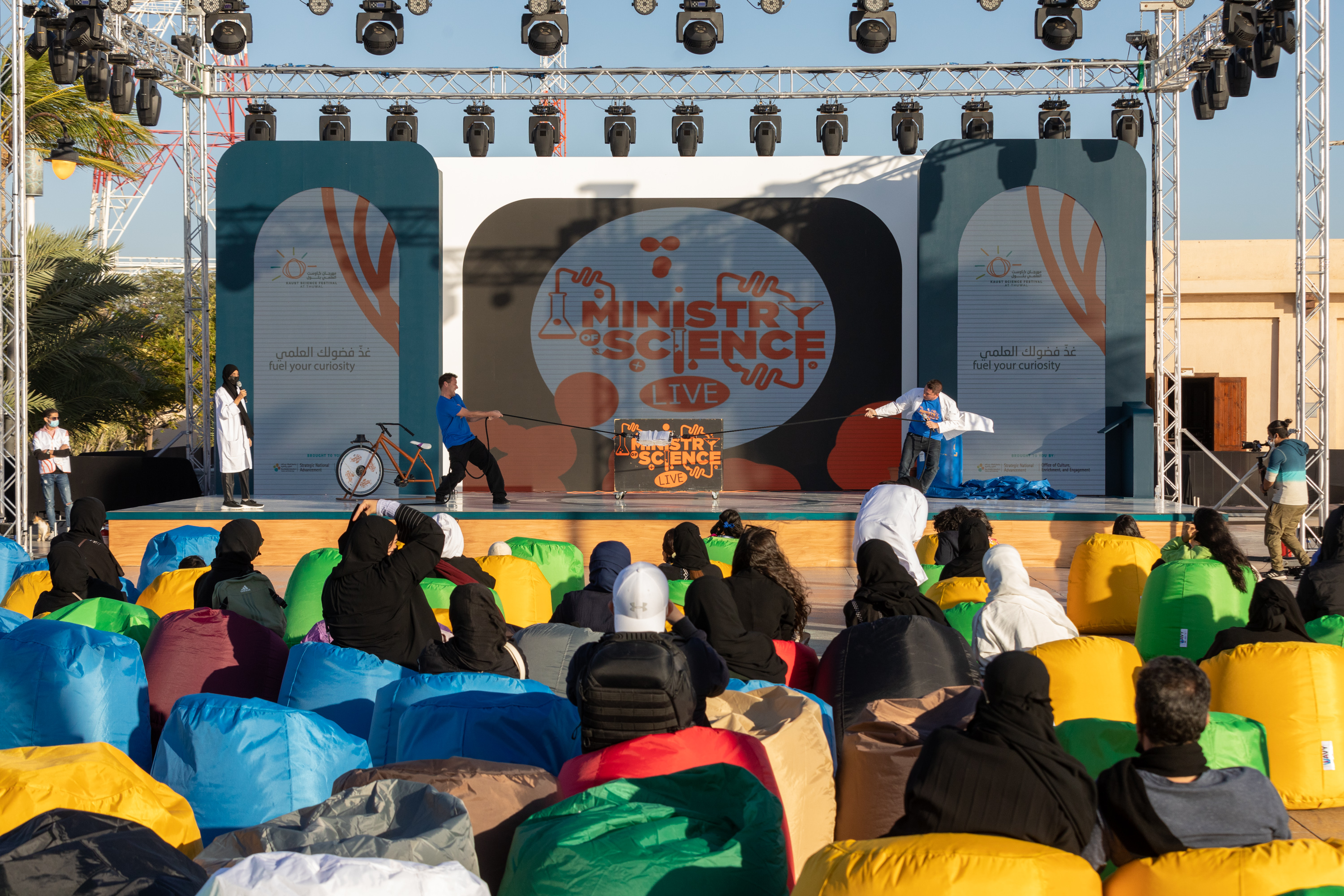
The Science Festival was a 3-day event of discovery and science communication aimed at the next generation of scientists on the Thuwal Corniche.
Hosted along the Thuwal Corniche over three days, the Science Festival was a unique opportunity for KAUST to engage with our neighbours and local communities in celebrating all things science, furthering our collective commitment to inspiring the next generation of scientists, engineers, innovators and thought leaders.
Over 7,000 visitors of all ages came to explore the festival’s diverse and interactive activities and presentations, which incorporated daily evening science shows, inspirational talks by KAUST faculty, youth STEAM Challenges, and a variety of science exhibits.
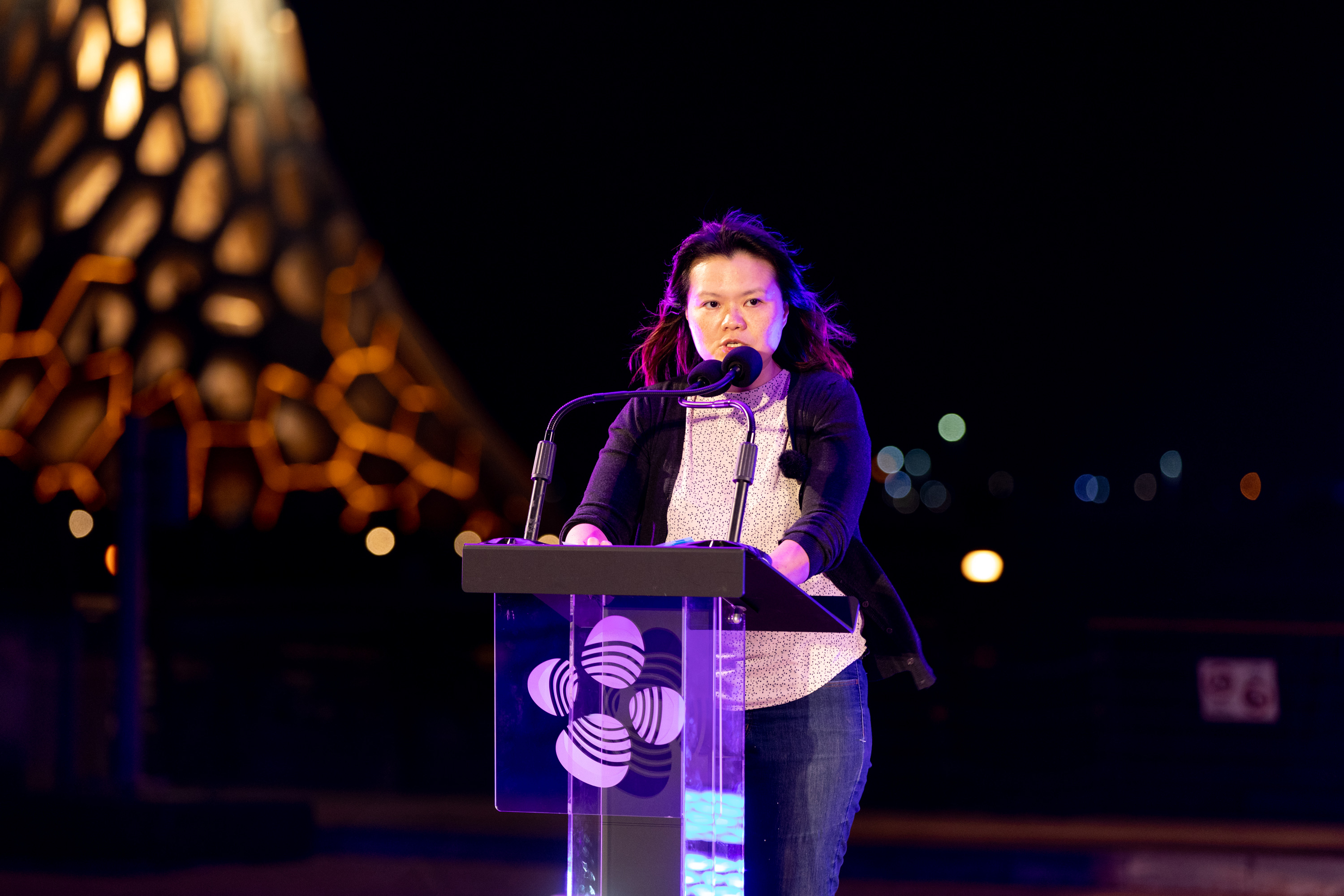
WEP 2022 Chair, Prof. Peiying Hong, speaking at the Final Gala.
On a more global participation scale, the KAUST Women to Impact (WTI) initiative organized the Resilience Challenge competition, calling for submissions from international teams of women and men innovators to offer science-based solutions to help build resilience in local ecosystems. The main themes were: environment, health, as well as digital, connectivity & cybersecurity, and finally food, water & energy. The top three winners were announced during WEP's closing award ceremony on January 20, 2022.
The KAUST Winter Enrichment Program (WEP) 2022 was made possible by the event sponsors: SEDCO Holding, KAUST Innovation, Tamimi Global, Strategic National Advancement, KAUST Innovation, Coastline and KAUST Community Life.
Related content
- Watch all WEP 2022 talks on YouTube
- WEP 2022: Jeffrey Sachs on building a green future
- Regenerative tourism highlighted at WEP 2022
- Carbon reduction strategies and their impact on system resilience
- Tackling climate and sustainability challenges as a global brand
- KAUST's Women to Impact unveil Resilience Challenge winners

